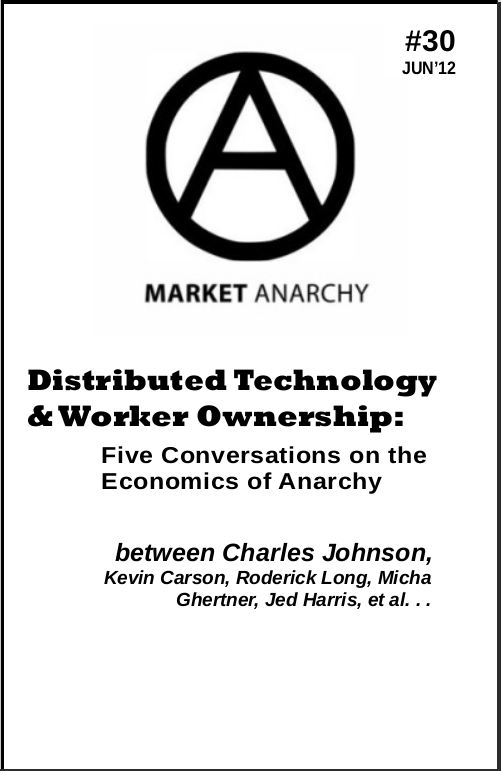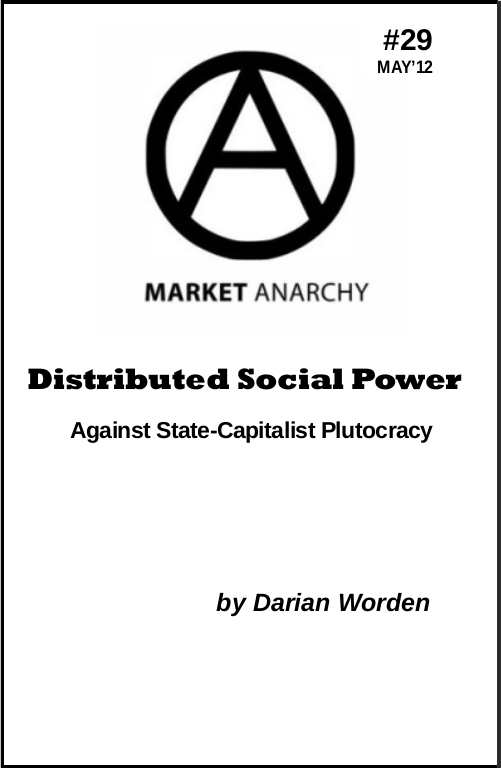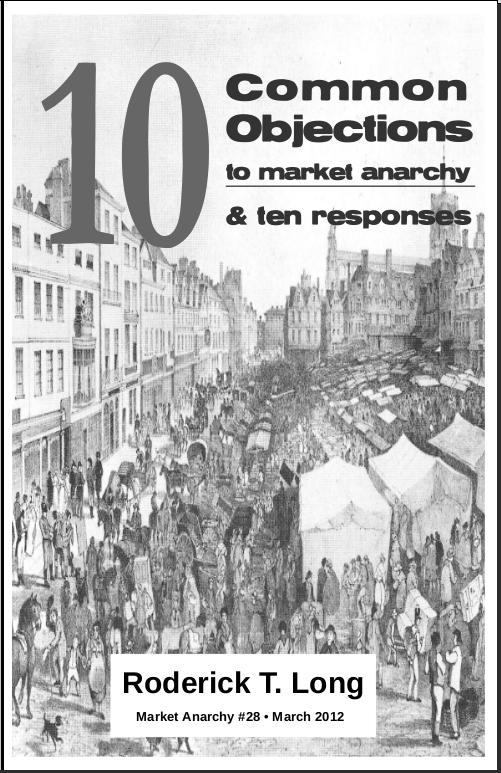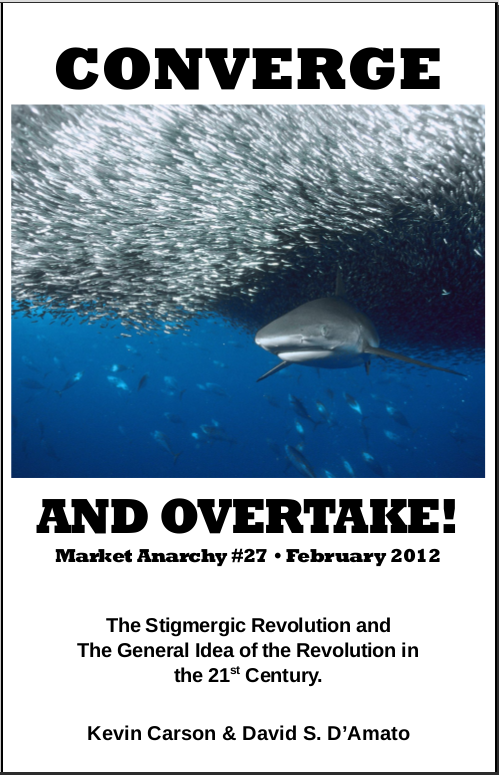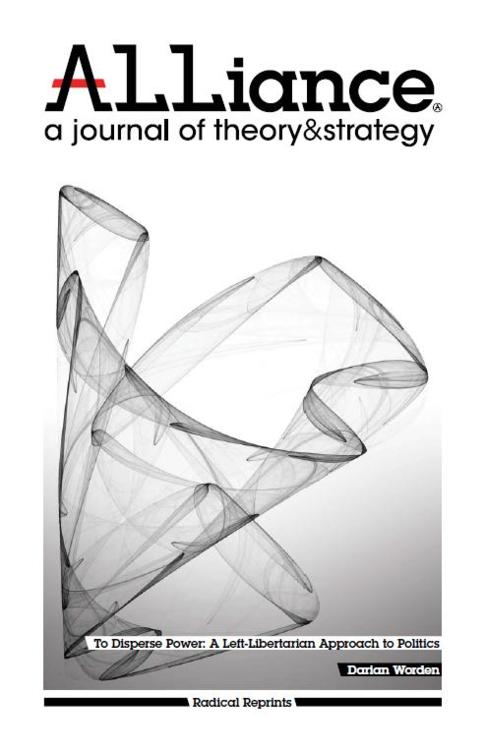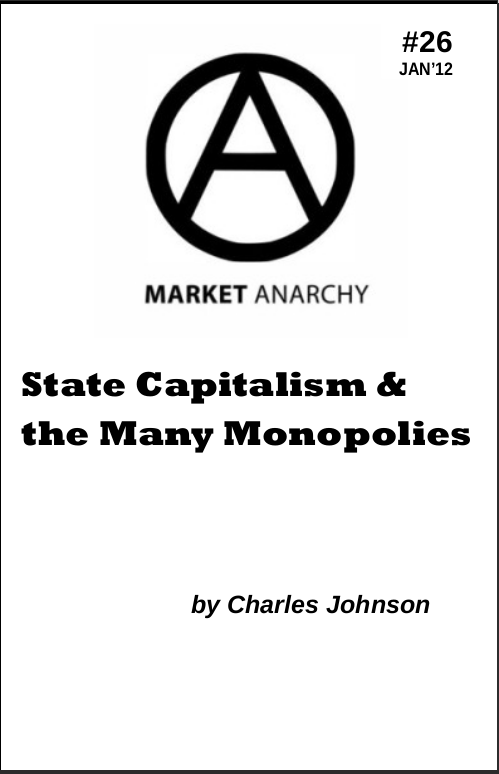Individualists get a bad rap in politics these days. That should come as no surprise; politics these days is dominated by electoral politics, and electoral politics is an essentially anti-individualistic enterprise. With free markets and other forms of voluntary association, people who can’t agree on what’s worthwhile can go their own ways. But the point of government elections is to give people in the political majority a means for forcing through their favorite laws, projects, and rulers over the objections of people in the political minority, and making everybody obey those laws, fund or participate in those projects, and acknowledge those rulers.
Still, even if it is unrealistic to expect individualism to get much respect from people who are deeply invested in electoral politics, it’s not too much to ask them not to try to score political points by totally distorting our position. In any case, if they do, it’s worth taking the time to set things straight.
For example, consider “The Social Animal” by neoconservative New York Times columnist David Brooks (September 12). He begins by quoting Barry Goldwater’s argument (from The Conscience of a Conservative) that “Every man for his individual good and for the good of his society, is responsible for his own development. The choices that govern his life are choices that he must make; they cannot be made by any other human being. . . . Conservatism’s first concern will always be: Are we maximizing freedom?”
Outmoded Notions?
Brooks says that Goldwater’s ideas seem to come from a vision of human life based on solitary, rugged individuals — “the stout pioneer crossing the West, the risk-taking entrepreneur with a vision, the stalwart hero fighting the collectivist foe.” Brooks protests that “a tide of research” in the human and social sciences has demonstrated that Goldwater’s old-fashioned individualist notions aren’t supported by the latest empirical evidence because, Brooks tells us, human beings are social creatures by nature, closely intertwined with each other in the fabric of a shared social life.
He then lays into a number of Republican policies that he considers too locked into the old Goldwater free-market framework — tax cuts, tax-funded education vouchers, and “federally funded individual choice” in health care. He suggests that individualistic free-market principles have kept modern conservatives from coming up with a convincing rationale for the federal government’s gigantic tax-funded bailouts for major investment firms and mortgage capitalists. (Apparently the failure to provide a convincing rationale for government bailouts of big business is supposed to be a problem for individualism, not a problem for the bailouts.) And he concludes that Goldwater’s legacy of unrealistic free-market individualism is now “the main impediment to Republican modernization,” which he believes has hobbled his fellow Republicans’ efforts to provide plausible responses to “the gravest current concerns,” which all trace back to the fact that “people lack a secure environment in which they can lead their lives.”
Maybe Brooks is right that Goldwater’s legacy is holding Republicans back politically. Individualistic ideas can be a tough sell, particularly since the obsessive focus on electoral politics as a panacea for every social ill ensures that genuinely individualistic ideas are almost never presented in the media or discussed in public forums. But whether he’s right or wrong about the best way for Republicans to “fully modernize,” I don’t care much about the Republican Party or its political prospects, or about Barry Goldwater’s reputation. I do care about the prospects for individualism and truly freed markets. And Brooks’s case against them commits a series of serious and misleading errors.
Brooks ultimately condemns free-market policies because they smack of individualism, and he condemns individualism because human beings are demonstrably social animals, who live interdependent lives and gain both utility and meaning through social networks, community, and shared projects. He points out that traditionalist conservative thinkers like Edmund Burke appreciated “the value of networks, institutions and invisible social bonds” — apparently believing that that sets them apart from individualist free marketeers. Of course human beings are social creatures, and networks, institutions, and invisible social bonds are all tremendously important to our shared lives and livelihoods. But to try to use that as an argument against individualism is nothing but a massive non sequitur. What individualist ever denied it?
Individualists, contrary to Brooks’s claims, don’t have any general objection to human sociality. We realize how much we all depend on one another in our everyday lives. That should be obvious enough from the fact that we believe in replacing government regimentation with freed markets and voluntary associations. But if it is not obvious enough, let’s make it as clear as we can.
A freed market is nothing more and nothing less than a form of spontaneous social collaboration. There are no markets without several people cooperating with each other to buy and sell, interdependent with others who work, invent, discover opportunities, and generally hustle to truck and barter. And there are myriad other ways for free people to choose individually to cooperate without cash exchanges, like family networks, charities, community organizations, fraternal lodges, or voluntary mutual-aid societies and workers’ unions.
Cooperation or Coercion
The debate between individualists and “modernized” collectivists has nothing really to do with whether or not human beings ought to live a social life; it has to do with the terms on which we associate to work and live together — whether our social combinations ought to be cooperative or coercive. Social combinations can only be truly cooperative if they are voluntary — if they are organized through persuasion and free agreement among everyone involved, rather than through force and coerced obedience by some to a few.
Apparently Brooks believes that we have only two options: Either we live as a mass of uncooperative but free solitary hermits and devil-take-the-hindmost “rugged individualists” or else we live as a network of cooperative but unfree “socially embedded creatures,” with government taxes and regulations shoving us down to make sure we stay good and embedded in the particular set of social arrangements that government favors — whether or not any of us would choose to make other arrangements with our fellows. But where does that leave the obvious third option — voluntary cooperation?
Individualism is not a philosophical rationale for antisocial attitudes or for indifference or hostility toward your fellow creatures. It is the collectivist, not the individualist, who sees human beings as naturally truculent creatures who don’t care enough about each other to get along peacefully and who need to have plans for collaboration forced on them from the top. Promising social harmony and security, collectivism delivers dissonance and violence.
Individualists believe in individualism precisely because we believe that human beings can and should be both social and civilized to each other at the same time — that community and social life don’t require shoving people around or bullying them into following one big plan. What Brooks fails to see is how — individually — we can peacefully, freely, and naturally form communities, institutions, and invisible social bonds as we make our way through the world.
Translations for this article:



